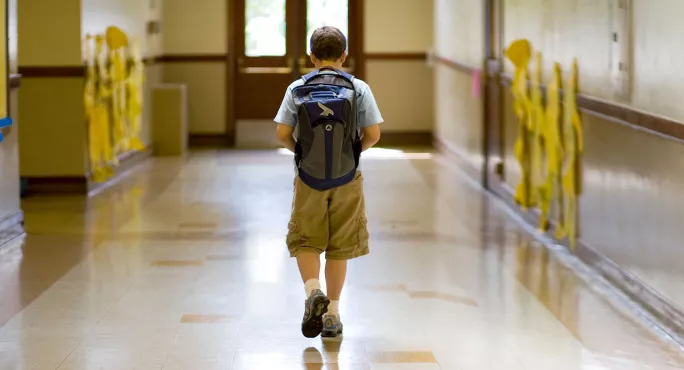Schools must “collect, monitor and analyse” data on isolation of pupils in order to “interrogate repeat patterns”, the Department for Education said today.
The guidance compelling schools to collect data on removal - which was previously referred to as isolation - has been strengthened following feedback.
In a consultation on draft guidance, which said that schools “may wish” to collect data, heads, teachers and other respondents said the language “should be stronger”.
In a consultation response published today, the DfE said it had “taken on board” the feedback, and the new guidance said schools should “collect, monitor and analyse removal data internally in order to interrogate repeat patterns and the effectiveness of the use of removal”.
The move was described as “positive” today by education legal experts.
Dan Rosenberg, an education solicitor and partner at law firm Simpson Millar, said the new guidance makes “it much clearer” what is expected of schools.
Behaviour: schools told to collect data on isolation
“This is a positive move by the government as it means schools will be able to spot trends within their data, including the sorts of pupils they are repeatedly isolating, and have information on the effectiveness (or otherwise) of the sanction,” he said.
“Having to analyse the data in the way the guidance now requires also will help school leaders and governors to identify whether children with SEND or of particular ethnicities are disproportionately affected, and will encourage them to identify ways of ameliorating the situation.
“It will also provide useful information for Ofsted when it conducts its inspections.”
The government has made a series of other changes to its guidance on behaviour - including on suspensions and permanent exclusions - in wake of the consultation.
When initially published, the behaviour guidance set out how a headteacher could not bring a permanent exclusion to an end after it had begun, and could not end a suspension earlier than the agreed end date once it had begun.
But the DfE said 52 per cent of those who responded to the consultation disagreed with the proposed changes.
And it added: “The department acknowledges the concerns raised around headteachers not being able to withdraw exclusions and will not be taking forward this legislative change.”
There are also several changes being made to the behaviour expectations for pupils with special educational needs and/or disabilities (SEND).
The DfE said the “most common” consultation responses for this section in the guidance related to the use of language and a need to include reasonable adjustments and flexibilities.
Two education lawyers warned at the time of the guidance’s publication that schools that followed the guidance, as it was written, risked breaking the law.
Now the updated guidance has amended various examples of how schools can meet their duties under the Equality Act 2010 and Children and Families Act 2014.





